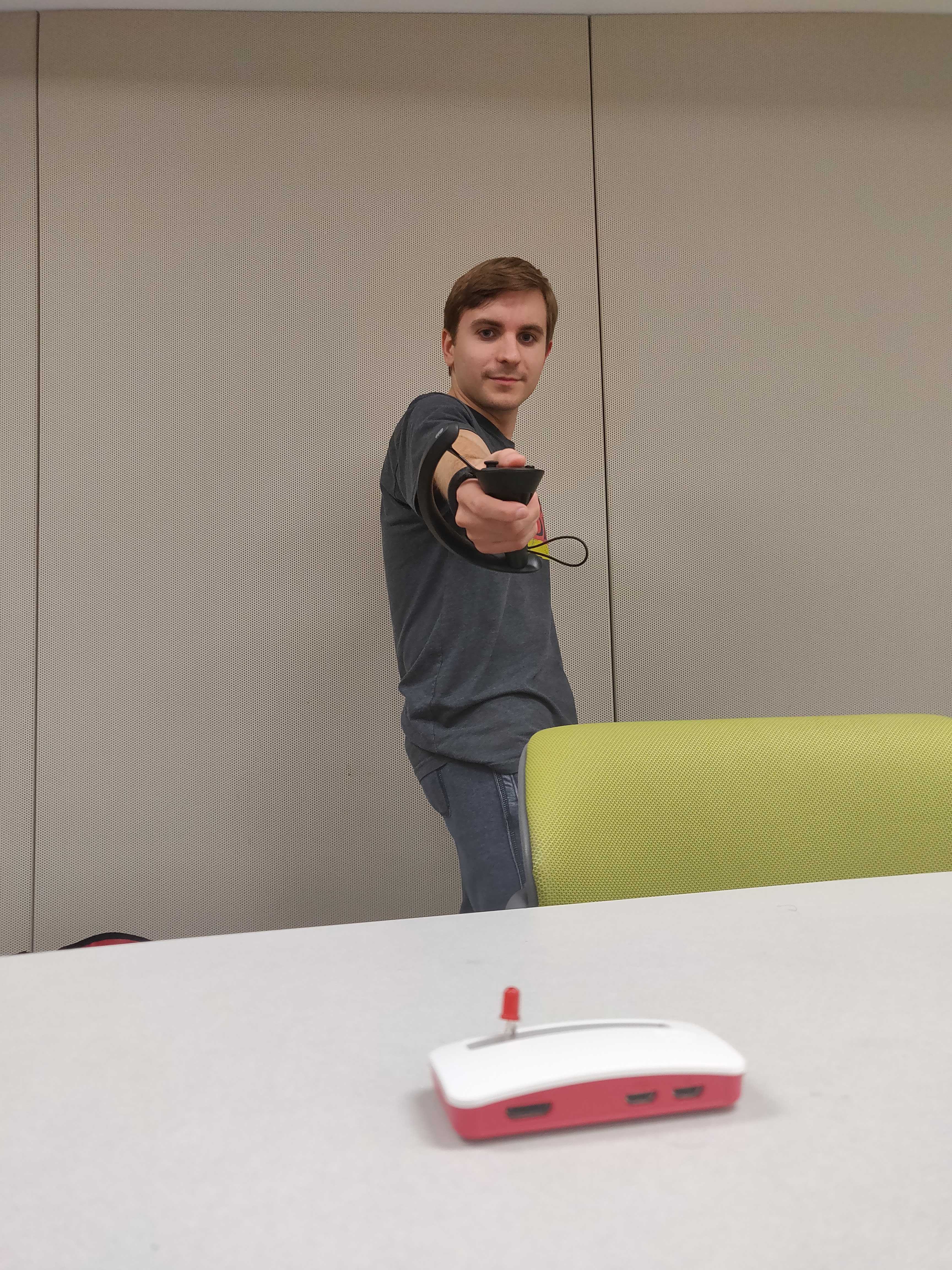ConductAR

Description as a Tweet:
A universal remote for all things IoT, using VR controllers to orchestrate the smart-home of the future.
Inspiration:
Some members of our team have a smart-home, and realized how great it would be to have one device to conduct all of the devices, both for convenience and persons with disabilities. A remote is also naturally more intuitive than an app, although we have that as well.
What it does:
The project allows users to point to smart appliances in 3D space, physical and digital, and manipulate them in an intuitive manner.
How we built it:
We used a Valve Index and Unity to power the 3D space, and Raspberry Pis as devices to work with it. We also used RabbitMQ as the interconnect between the React Native mobile app, devices, and VR hardware.
Technologies we used:
- Javascript
- Node.js
- React
- Python
- Raspberry Pi
- Other Hardware
Challenges we ran into:
We originally tried to use a native OpenVR system for Python, but encountered difficulty in simulating all of the depth-of-field vector calculations needed to keep track of where the user is pointing.
Accomplishments we're proud of:
We're extremely proud of how seamlessly our vast array of devices and software integrated using RabbitMQ.
What we've learned:
Major pivots in a tech stack mid-project is not always detrimental to the project quality.
What's next:
More devices! We want to have a robust ecosystem of hardware that have real-world applications to create an immersive smart-home experience.
Built with:
A Valve Index (with light-houses), Unity, Raspberry Pi Zeroes, Google Drawings for architecture diagrams, Trello for ticket management, React Native with Expo for a mobile application and a powerful desktop PC.
Prizes we're going for:
- Best AR/VR Hack
- Best Hardware Hack
- Best STEM Hack
Prizes Won
Team Members
Jackson Weber
Marie Kiryanova
Harrison Orne
